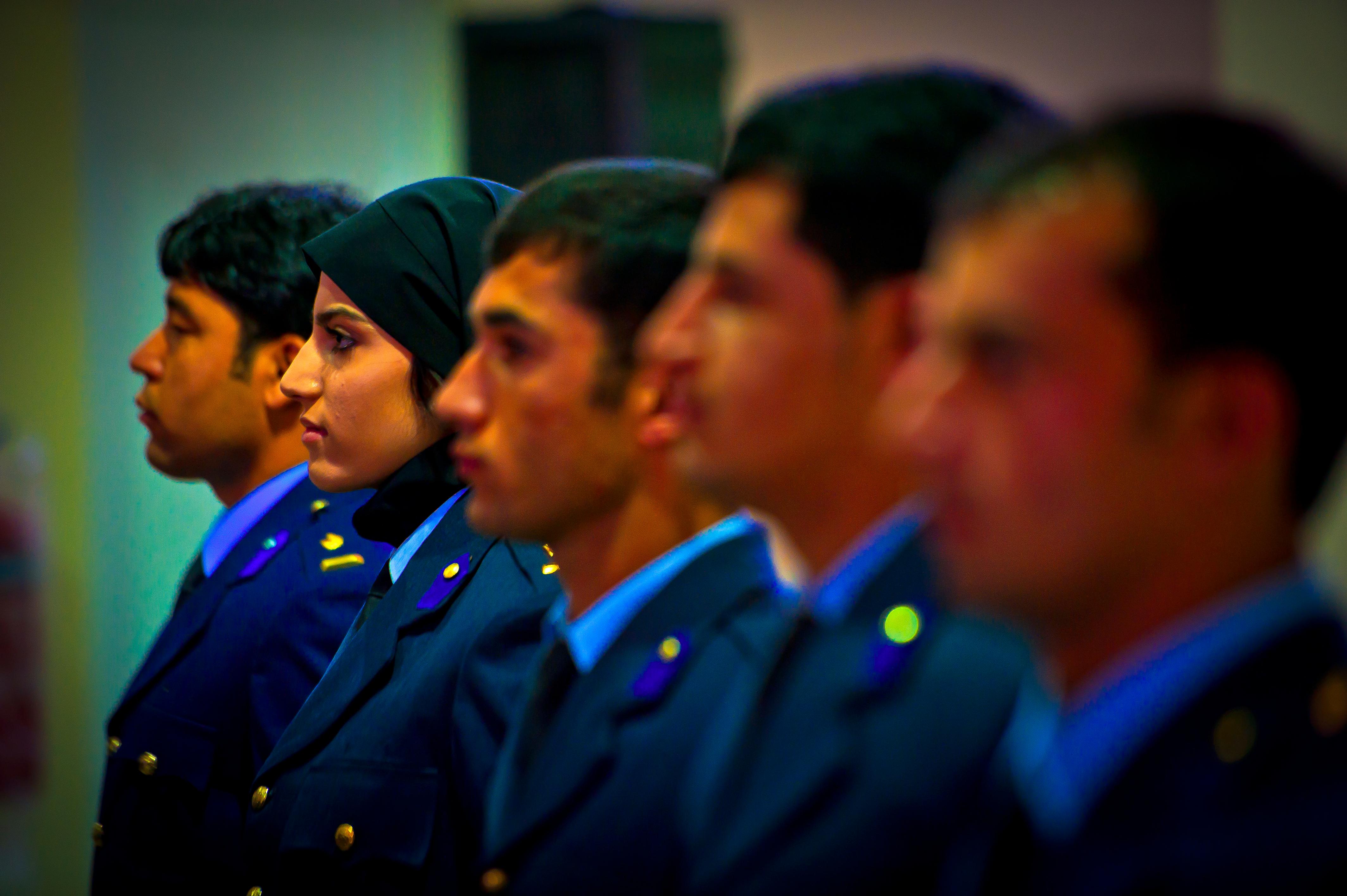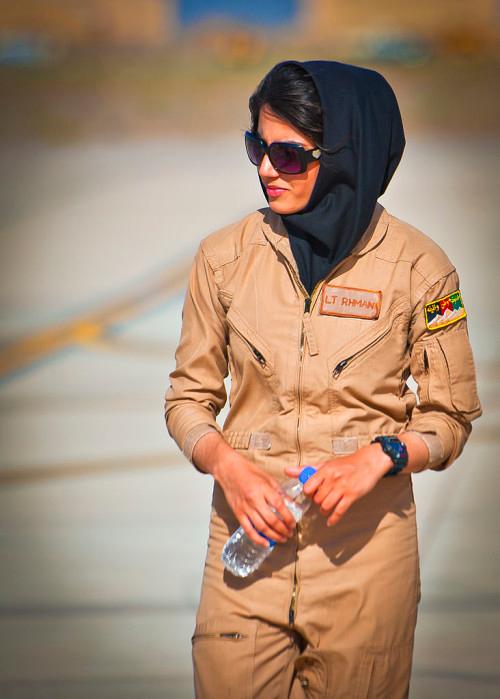Scared For Her Life, Afghanistan’s First Female Pilot Fights For U.S. Asylum

Cultural context is key. Especially when it comes to understanding the importance of Niloofar Rahmani’s story.
Late last week, news broke that Afghanistan’s first female Air Force pilot, Niloofar Rahmani, is requesting asylum in the United States. Rahmani is citing threats to her life as the reason for her requests.
Since she joined the Afghanistan Air Force three years ago, Rahmani rose to international media fame, and was hailed as the token figure of U.S./Afghani military success, as well as a feminist icon for women around the world. She was celebrated in Washington in 2015 when the State Department honored her with its annual Women of Courage award.
“She continues to fly despite threats from the Taliban and even members of her own extended family,” Michelle Obama, said in a statement.
From the beginning, Rahmani’s decision to join the air force wasn’t just courageous, it was death defying. It is estimated that Afghan women face a 90% chance of being physically, sexually or emotionally abused during their lifetime. Honor killings still loom large over women who ‘bring shame’ to their families, particularly if those women are believed to be promiscuous or are overtly defying cultural norms, like leaving their houses without a male family member present. Acid burnings are not uncommon from men who feel scorned and often go unpunished.
Needless to say, Rahmani’s move to join the airforce was extremely dangerous, and did not come without its cultural backlash. Though Rahmani had the support of her immediate family, including that of both her parents, she began receiving death threats from her extended family and soon thereafter, Taliban forces. According to Rahmani, these threats have not subsided and have only increased during her duration as a pilot. Further, her work environment only perpetuated animosity and contempt from fellow male co-workers and military leaders, who found her presence as a female to be extremely too threatening to their cultural beliefs surrounding taboos about women in the workforce.

Perhaps because avoiding shame is such an essential part of this culture, it is unsurprising that military spokespeople for Afghanistan have spoken out vehemently against Rahmani. Military officials in Afghanistan asked the United States to reject her request for asylum, stating that her life isn’t at risk at all.
In a statement released on Sunday, Afghani defense Ministry spokesman General Mohammad Radmanish declared, “I am sure she lied by saying she was threatened, just to win the asylum case. It is baseless that she claimed her life was at risk while serving in the Afghan Air Force.”
Colonol Ayan Khan, a helicopter Pilot in the Afghan Air Force went on to add: “Captain Rahmani’s claim that she was harassed in the workplace is not true, because in the air force all the pilots and staff are well-educated and highly trained people. How can they harass their female colleague who serves along them?”
Colonol Ayan Khan’s claim outlines the dangerous conflation of values pertaining to gender, class and national pride. In Khan’s eyes, only people from certain Afghan classes commit acts of harassment against women, and those affiliated with the government organizations would not be part of that.
The reality is that harassment and gender discrimination aren’t defined by class distinction or nationalism. Gender discrimination and harassment are present in every country within the world, and pervades every institution and organization.
That being said, for Rahmani to take such a bold and very public stance against her government would only further perpetuate contempt and threats against her on her return home for bringing shame to the government and her country.
Lets hope U.S. officials are able to tease apart the various layers of this case, and that Rahmani is able to gain sanctuary.





